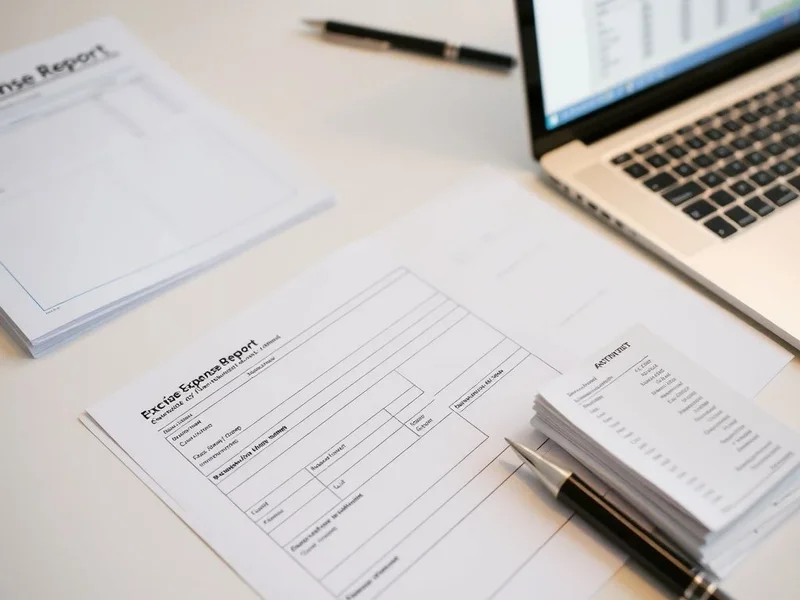How to Write a Clear Expense Report: A Guide for Professionals
Have you ever traveled for work or bought supplies for your team? If so, you need to know how to write an Expense Report. This document is essential for getting your money back from your company. Mastering this type of report is a key part of professional workplace communication. This guide will help you write clear and accurate reports every time.

Table of Contents
- What Is an Expense Report?
- Key Components of an Expense Report
- Sample Language & Sentence Starters
- Key Vocabulary for Your Expense Report
- Conclusion
What Is an Expense Report?
An Expense Report is a form you fill out to ask your employer to pay you back for money you spent on business-related costs. It is a fundamental tool for financial tracking in any company. You use it after you pay for things like client meals, travel tickets, or office supplies with your own money.
The main purpose is to get reimbursed, which means getting your money back. These reports also help companies track their spending, manage budgets, and follow tax rules. This is a common task in almost every industry, from tech to healthcare, for any employee who makes purchases for the company.
More: How to Write a Powerful Department Report A Guide for Professionals
Key Components of an Expense Report
A good Expense Report is clear, organized, and easy to understand. Using a professional format and tone is crucial for quick approval. While every company has a slightly different form, most include these key sections.
- Employee Information: Your full name, employee ID, and department. This identifies who is submitting the report.
- Report Details: The time period the report covers (e.g., "October 1-15, 2023") and the date you are submitting it.
- Itemized Expenses: This is the main part of the report. Each expense should have its own line with the date, category (e.g., travel, food, supplies), a short description, and the exact amount.
- Total Amount: The sum of all your expenses. Always double-check your math here.
- Attached Receipts: You must attach copies of all your receipts as proof of purchase. This is the most important step for getting your report approved.
More: How to Write a Professional Client Report: A Step-by-Step Guide
Sample Language & Sentence Starters
Using clear and simple language is key in business English. Your manager should understand each expense without needing to ask questions. Here are some common phrases to use.
For the Expense Description:
Taxi fare from airport to hotelLunch with client [Client Name] to discuss projectPurchase of printer paper for office useRound-trip flight to [City] for [Conference Name]Hotel accommodation for business trip (3 nights)
For a Summary or Purpose Section (if included):
This report details expenses for the Q4 sales conference in London.Expenses submitted for the client visit on [Date].Reimbursement request for office supplies purchased in October.
More: Mastering the Financial Overview Report A Guide for Professionals
Key Vocabulary for Your Expense Report
Learning these terms will improve your writing skills and help you complete your reports correctly. Many resources, like the Purdue OWL's guide on professional writing, emphasize the importance of using precise vocabulary.
| Term | Definition | Example Sentence |
|---|---|---|
| Reimbursement | The act of paying someone back for money they have spent. | I submitted my report for reimbursement of travel costs. |
| Receipt | A piece of paper that proves you paid for something. | You must attach every original receipt to your report. |
| Per Diem | A fixed amount of money given for daily expenses, like food. | The company offers a $50 per diem for meals during business travel. |
| Itinerary | A detailed plan or route of a journey. | My travel itinerary includes flights and hotel bookings. |
| Justification | A reason or explanation for something. | Please provide a justification for any expense over $100. |
| Out-of-pocket | Expenses you pay with your own money. | I paid for the taxi out-of-pocket and will claim it back. |
| Categorize | To group things based on their type. | Please categorize each expense as either 'travel' or 'meals'. |
| Submit | To formally give a document to someone for approval. | You must submit your expense report by the end of the month. |
| Approve | To officially agree to or accept something. | My manager needs to approve the report before I get paid. |
| Discrepancy | A difference between two things that should be the same. | There is a discrepancy between the receipt and the amount you claimed. |
| Policy | A set of rules followed by a company or group. | Please read the company's travel expense policy before your trip. |
| Expenditure | The total amount of money that a company or person spends. | The finance department tracks all company expenditures. |
Conclusion
Writing a clear and accurate Expense Report is a vital skill in any professional job. It shows you are responsible, organized, and honest. By following the correct report structure and using clear language, you ensure a smooth reimbursement process and build trust with your employer.
For practice, take a recent personal receipt (like for coffee or groceries). Write one line for it as if you were adding it to an expense report. Include the date, a category, a description, and the amount.
Ready to improve your professional writing? Try creating your own full sample Expense Report today!